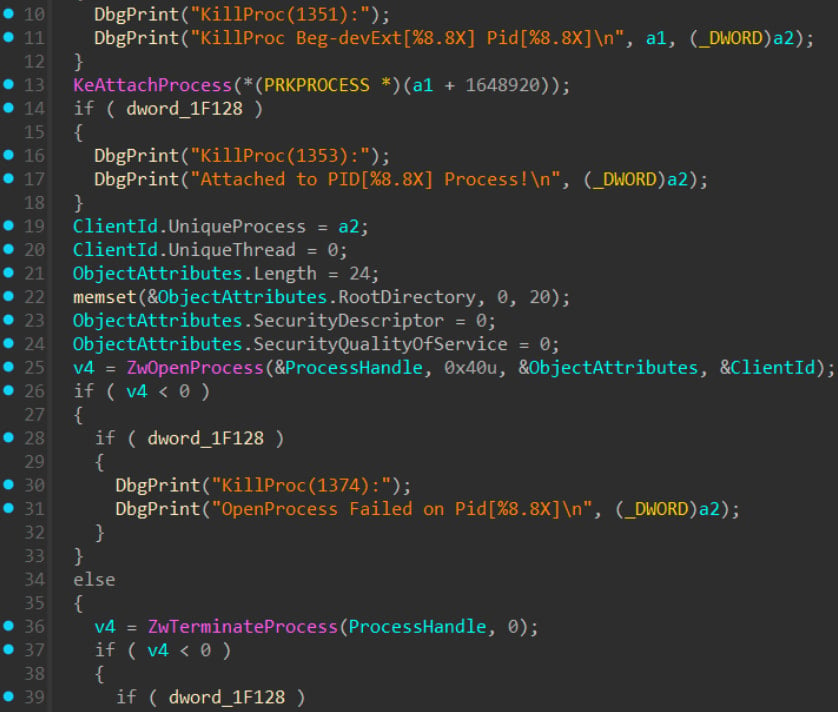If it feels like the tech people in your life and on your timeline have collectively lost their minds — but, like, more than usual — that’s just the Claude Code experience at work.
Tech
Claude Code, explained: why this AI tool has tech people freaking out

Now if you know what I’m talking about, you’re either vibe coding so hard you’re about to dissolve into a digital rapture or you’re in a cold sweat and drafting your “I, for one, welcome our AI overlords” email.
But if you think Claude Code sounds like a New York Times word game you haven’t gotten around to trying out, this FAQ is for you.
Okay, so, what is it?
Right, you know how chatbots…chat? As in, write to you, talk to you, compose your college papers? Claude Code, which comes from the AI company Anthropic, is an AI tool that can actually do things with your computer. Actually, many of the things you can do with your computer. (Well, not you, if you’re the target audience for this FAQ, but someone who is an expert programmer who never sleeps, never says no, and works at an impressive speed.)
Do…like what things?
Honestly, it’d be easier to list the things it can’t do with a computer. But an incomplete rundown of what users have accomplished with Claude Code would include: a Spotify Wrapped program but for text messages; personalized daily briefs that pull in emails, newsletters, and more; a Pokémon card management system; a personal DNA analyzer; and a “cyberpunk” Tetris game. You will need at least a $20 a month Claude Pro account — no freebies for you.
…Cool? But it has “code” in the name — do I have to know something about programming?
No worries! Yes, Claude Code is designed to work in what’s known as a “command-line interface,” or the part of your computer where instead of clicking on icons or writing normal sentences, you type commands with a programming language into a terminal, aka the black screen where nerds are entering their code.
Whoa, whoa, whoa! Do I look like 1995 Angelina Jolie in the movie Hackers? I don’t know what any of that means.
It’s okay — neither do I!
It’s true that experienced programmers can get the most out of Claude Code (though they’re also the ones that are undergoing the deepest existential crises). But the learning curve for using Claude Code is descending faster than a Six Flags roller coaster, and you can increasingly interact with Claude Code more or less as you would with a chatbot if you want — with plain English and relatively few commands. Be warned that it’s clunkier than using it in the terminal, but honestly I wouldn’t trust either of us with that.
Bottom line, the process works like this:
- You tell it what you want (fix a bug or make a new feature).
- It looks through the project’s codebase — all the files that make the program you’re working on run, including the actual code plus the configuration and test files around it — to understand what’s happening.
- It edits the relevant files.
- It can run tests/commands to see if it broke anything.
- It iterates.
In the best-case scenario, it closes the loop, mostly on its own: plan → change → check → fix. That’s why people who build software for a living are acting like they’ve been freed from a thousand tiny paper cuts.
But I would like to keep my files. Ideally all of them. In their current state of existence.
Smart person. Claude Code is agentic-ish, meaning it can carry out tasks with little to no supervision, and as any manager knows, the benefits of an agent (“it can act autonomously!”) are also the drawbacks of an agent (“oh no, it just acted autonomously!”).
So if you start messing around with it, be sure to be very, very explicit in your directions — like, “do not delete anything. I really mean this.” (Fortunately, by default Claude Code still taps you on the shoulder before anything irreversible.) It’s sort of like parenting a 5-year-old with superpowers.
Also, keep backups of anything important. But obviously you already do that.
Uh, sure…moving on, I understand why this is such a big deal for programmers. But does it really matter for the rest of us?
Sure does! As Future Perfect contributing editor Dylan Matthews wrote last year — borrowing a phrase from AI writer/investor Leopold Aschenbrenner — the scary endgame is “drop-in remote workers.”
Put simply, if you are a remote worker, it likely means you execute most of your tasks on a computer. Like I’m doing right now. And while I may not think of myself as manipulating computer code in my work, under the hood, that’s exactly what’s happening with every letter I press in this document.
Large language models — especially complex reasoning ones like Claude’s Opus 4.5, the preferred model for super-charged Claude Code work — are already very good at thinking, analyzing and writing, and they’re only likely to improve.
Claude Code is what happens when you take a language model and give it tool access — file editing, searching, running commands — inside your codebase, with guardrails you can loosen (or, regrettably, remove). In other words, if you’re a remote worker, Claude Code could conceivably “drop in” and do some, most, or maybe all of that work. If chatbots could really just advise, models like Claude Code can actually do.
And Anthropic is already trying to port that same “Claude with hands” feeling out of the programmer cave and into the rest of your digital life. That’s the idea behind the just-released Claude Cowork: Instead of pointing Claude at a codebase, you point it at a normal-person folder — your notes, docs, spreadsheets, PDFs, screenshots, the junk drawer of modern work — and it can read, organize, extract, and draft inside that space to produce real deliverables, not just suggestions.
If Claude Code is a drop-in remote worker for software teams, Cowork is the version that can drop into the work most remote workers actually do: turning messy inputs into usable outputs, faster than you can say “sorry, circling back.”
Yes, now perhaps you understand why Anthropic CEO Dario Amodei warned that we could be “sleepwalking into a white-collar bloodbath,” with AI wiping out huge numbers of entry-level jobs fast.
Have you tried Claude Cowork?
Not yet. Cowork had only been available on the $100 a month Max account and above — though on Friday, Anthropic opened it up to the $20 a month Pro accounts — and obviously I have to save up for the post-work apocalypse.
Wait, aren’t you supposed to be the Good News guy?
Indeed I am! (Sign up for the newsletter here.) And if you squint, you can argue that what we’re likely to see is less replacing human jobs than rearranging them, turning workers into managers of teams of future AI agents, responsible for setting goals, checking outputs, and making judgement calls. So I guess in this more optimistic future, we’ll all be Office Space’s Bill Lumbergh, directing our army of AI agents to fill out infinite TPS reports.
O brave new world, that has such agents in it!
Yeah, I think the one thing we can count on is that it’s going to get weird. I mean, weirder.
But in the meantime, unless you’re planning on going around sabotaging data centers — please don’t — you really can meaningfully improve your work and even your life if you begin to play around with these tools. The first time you actually create something that works is a pretty powerful feeling. Like I imagine how Mickey felt halfway through The Sorcerer’s Apprentice.
Do…you know how that ended?
And they all lived happily ever after.
(Disclosure: Future Perfect is funded in part by the BEMC Foundation, whose major funder was also an early investor in Anthropic; they don’t have any editorial input into our content.)
Update, January 16, 2025, 1:45 pm ET: This story was published on January 16 andhas been updated to reflect that Anthropic has opened Cowork to Pro account users.
Tech
Harnessing Plasmons for Alternative Computing Power


Much has been made of the excessive power demands of AI, but solutions are sparse. This has led engineers to consider completely new paradigms in computing: optical, thermodynamic, reversible—the list goes on. Many of these approaches require a change in the materials used for computation, which would demand an overhaul in the CMOS fabrication techniques used today.
Over the past decade, Hector De Los Santos has been working on yet another new approach. The technique would require the same exact materials used in CMOS, preserving the costly equipment, yet still allow computations to be performed in a radically different way. Instead of the motion of individual electrons—current—computations can be done with the collective, wavelike propagations in a sea of electrons, known as plasmons.
De Los Santos, an IEEE Fellow, first proposed the idea of computing with plasmons back in 2010. More recently, in 2024, De Los Santos and collaborators from University of South Carolina, Ohio State University, and the Georgia Institute of Technology created a device that demonstrated the main component of plasmon-based logic: the ability to control one plasmon with another. We caught up with De Los Santos to understand the details of this novel technological proposal.
How Plasmon Computing Works
IEEE Spectrum: How did you first come up with the idea for plasmon computing?
De Los Santos: I got the idea of plasmon computing around 2009, upon observing the direction in which the field of CMOS logic was going. In particular, they were following the downscaling paradigm in which, by reducing the size of transistors, you would cram more and more transistors in a certain area, and that would increase the performance. However, if you follow that paradigm to its conclusion, as the device sizes are reduced, quantum mechanical effects come into play, as well as leakage. When the devices are very small, a number of effects called short channel effects come into play, which manifest themselves as increased power dissipation.
So I began to think, “How can we solve this problem of improving the performance of logic devices while using the same fabrication techniques employed for CMOS—that is, while exploiting the current infrastructure?” I came across an old logic paradigm called fluidic logic, which uses fluids. For example, jets of air whose direction was impacted by other jets of air could implement logic functions. So I had the idea, why don’t we implement a paradigm analogous to that one, but instead of using air as a fluid, we use localized electron charge density waves—plasmons. Not electrons, but electron disturbances.
And now the timing is very appropriate because, as most people know, AI is very power intensive. People are coming against a brick wall on how to go about solving the power consumption issue, and the current technology is not going to solve that problem.
What is a plasmon, exactly?
De Los Santos: Plasmons are basically the disturbance of the electron density. If you have what is called an electron sea, you can imagine a pond of water. When you disturb the surface, you create waves. And these waves, the undulations on the surface of this water, propagate through the water. That is an almost perfect analogy to plasmons. In the case of plasmons, you have a sea of electrons. And instead of using a pebble or a piece of wood tapping on the surface of the water to create a wave that propagates, you tap this sea of electrons with an electromagnetic wave.
How do plasmons promise to overcome the scaling issues of traditional CMOS logic?
De Los Santos: Going back to the analogy of the throwing the pebble on the pond: It takes very, very low energy to create this kind of disturbance. The energy to excite a plasmon is on the order of attojoules or less. And the disturbance that you generate propagates very fast. A disturbance propagates faster than a particle. Plasmons propagate in unison with the electromagnetic wave that generates them, which is the speed of light in the medium. So just intrinsically, the way of operation is extremely fast and extremely low power compared to current technology.
In addition to that, current CMOS technology dissipates power even if it’s not used. Here, that’s not the case. If there is no wave propagating, then there is no power dissipation.
How do you do logic operations with plasmons?
De Los Santos: You pattern long, thin wires in a configuration in the shape of the letter Y. At the base of the Y you launch a plasmon. Call this the bias plasmon, this is the bit. If you don’t do anything, when this plasmon gets to the junction it will split in two, so at the output of the Y, you will detect two equal electric field strengths.
Now, imagine that at the Y junction you apply another wire at an angle to the incoming wire. Along that new wire, you send another plasmon, called a control plasmon. You can use the control plasmon to redirect the original bias plasmon into one leg of the Y.
Plasmons are charge disturbances, and two plasmons have the same nature: They either are both positive or both negative. So, they repel each other if you force them to converge into a junction. And by controlling the angle of the control plasmon impinging on the junction, you can control the angle of the plasmon coming out of the junction. And that way you can steer one plasmon with another one. The control plasmon simply joins the incoming plasmon, so you end up with double the voltage on one leg.
You can do this from both sides, add a wire and a control plasmon on either side of the junction so you can redirect the plasmon into either leg of the Y, giving you a zero or a one.
Building a Plasmon-Based Logic Device
You’ve built this Y-junction device and demonstrated steering a plasmon to one side in 2024. Can you describe the device and its operation?
De Los Santos: The Y-junction device is about 5 square [micrometers]. The Y is made up of the following: a metal on top of an oxide, on top of a semiconducting wafer, on top of a ground plane. Now, between the oxide and the wafer, you have to generate a charge density—this is the sea of electrons. To do that, you apply a DC voltage between the metal of the Y and the ground plane, and that generates your static sea of electrons. Then you impinge upon that with an incoming electromagnetic wave, again between the metal and ground plane. When the electromagnetic wave reaches the static charge density, the sea of electrons that was there generates a localized electron charge density disturbance: a plasmon.
Now, if you launch a plasmon by itself, it will quickly dissipate. It will not propagate very far. In my setup, the reason why the plasmon survives is because it is being regenerated. As the electromagnetic field propagates, you keep regenerating the plasmons, creating new plasmons at its front end.
What is left to be done before you can implement full computer logic?
De Los Santos: I demonstrated the partial device, that is just the interaction of two plasmons. The next step would be to demonstrate and fabricate the full device, which would have the two controls. And after that gets done, the next step is concatenating them to create a full adder, because that is the fundamental computing logic component.
What do you think are going to be the main challenges going forward?
De Los Santos: I think the main challenge is that the technology doesn’t follow from today’s paradigm of logic devices based on current flows. This is based on wave flows. People are accustomed to other things, and it may be difficult to understand the device. The different concepts that are brought together in this device are not normally employed by the dominant technology, and it is really interdisciplinary in nature. You have to know about metal-oxide-semiconductor physics, then you have to know about electromagnetic waves, then you have to know about quantum field theory. The knowledge base to understand the device rarely exists in a single head. Maybe another next step is to try to make it more accessible. Getting people to sponsor the work and to understand it is a challenge, not really the implementation. There’s not really a fabrication limitation.
But in my opinion, the usual approaches are just doomed, for two reasons. First, they are not reversible, meaning information is lost in the computation, which results in energy loss. Second, as the devices shrink energy dissipation increases, posing an insurmountable barrier. In contrast, plasmon computation is inherently reversible, and there is no fundamental reason it should dissipate any energy during switching.
From Your Site Articles
Related Articles Around the Web
Tech
Apple AirTag (2026) review: Simply better

It’s hard to tell the difference between Apple’s second-generation AirTag and the almost-five-year-old original just by looking at them. In fact, the only way to tell is the many scratches on my old tracker, picked up from all those years attached to my keyring, living in my pocket.
While the price is still $29, Apple’s latest tracker packs some core upgrades. The new AirTag has a second-generation ultra-wideband (UWB) chip that extends its Precise Finding range up to 50 percent, though it requires an iPhone 15 or newer to do so. It’s also apparently 50 percent louder and has a new, higher-pitched chime. Still no keyring hole, though.
Apple has improved its Bluetooth tracker in practically every way, making it louder and extending its detection range.
- Precise Finding is far more useful
- Louder and easier to hear
- Same price as the original AirTag
- Still lacks a keyring hole
- Apple’s AirTag accessories are too expensive
The new AirTag looks… the same. It’s arguably the most understated hardware design Apple has ever made, with no buttons or ports, just a company logo on one side. It’s made from a combination of a stainless steel plate and a (now 85-percent recycled) plastic enclosure. It’s like a thick coin, a little bigger than a quarter, and slips into any small pocket or wallet. The battery can be replaced by rotating the backing off, but it’s still solid enough that I never felt there was a risk of coming off accidentally.
Apple’s accessories to attach the AirTag to your keys are still more expensive than the tracker itself. However, compared to when the original tracker launched, there’s now a rich collection of third-party options from the likes of Mophie, Belkin and more, many of which are more reasonably priced at around $15. A $35 keyring for a $29 tracker is a very tough sell, Apple.
Apple’s new AirTag promises increased range and a louder ring chime. (Mat Smith for Engadget)

Setting up a new AirTag is just as effortless as its predecessor. Pull out the plastic tag, connecting the battery, and a notification will pop up on your nearby iPhone. You can then name it, assign it to an item and it’ll join your list of findable Apple hardware.
I’ve been testing the range of the new AirTag, and if anything, the 50 percent increase in Precision Finding range is a conservative estimate. Naturally, tracking can be affected by building structure, walls, a lack of nearby Find My network devices and other interference, but the next-generation AirTag’s “getting closer” screen consistently appeared on my phone when I was around 80 feet away. The older tracker, however, needed me to be around 30-40 feet away to do the same. The benefit of Precision Finding was limited on the debut AirTag, because its range was so tiny — especially in busy environments. The hardware upgrades now make it truly useful. The new AirTag is also faster to connect and more responsive to my movements and sudden turns, thanks, I expect, to the new ultra-wideband chip.
You can now also use newer Apple Watches (Series 9, Ultra 2 and up) with precision location detection. After updating her Apple Watch Series 11 to the latest software, my colleague Cherlynn Low reported that locating the new AirTag was pretty much the same as on an iPhone. She did find it slightly counterintuitive to have to first add the Find My shortcut to the Control Center on the watch instead of going to the Find My Items app to do so, but ultimately, once she did that, it mirrored the existing setup for Precision Finding on iPhones.
Apple’s new AirTag promises increased range and a louder ring chime. (Mat Smith for Engadget)

Apple also redesigned the AirTag’s speaker assembly, which it says makes sounds 50 percent louder. Possibly the most effective audio upgrade is a higher-pitched chime that’s easier to hear over ambient noise and in busy public spaces. I could hear it ringing out from the other side of my gym’s locker room, while inside a locker, over music playing in the background. My old AirTag was inaudible until I was a few feet away from my locker. I always thought the sound on the original AirTag was a little too low-key for something you were urgently trying to find. (I’d love to be able to customize the chime, though.)
It’s the Find My network that makes the AirTag shine. Apple’s massive footprint of over a billion devices, from iPhones to Macs, continues to offer a tracking range and finer precision than GPS and Bluetooth alone. If anything, this network is even more built out since the launch of the first Apple tracker.
Since we tested the first AirTag, Apple has added multiple new features, usually through iOS updates, that expanded the utility and versatility of its trackers. In iOS 17, you could share an AirTag through Family Sharing. In iOS 18.2, Share Item Location allowed you to share your tracking information with third parties (such as airlines or train companies), improving the chances of finding the AirTag.
There have also been subsequent safety upgrades, including expanding unknown tracker alerts to Android devices without needing to install an app. Apple also reduced the time an AirTag takes to emit a sound when separated from its owner, shifting the interval to a random range between 8 and 24 hours. At launch, this was a three-day span.
Wrap-up

Apple’s second-gen AirTag is still $29. (Mat Smith for Engadget)
Do you need the new AirTag? While improved in every way, it’s pretty much the same device. However, the AirTag’s simplicity and ease of use are second to none when it comes to Bluetooth trackers. If you already own a single AirTag for your keys or wallet, upgrading to the second-gen iteration and repurposing the old one to track, say, your luggage, makes a lot of sense. You get the more precise location tracking and sensing for your smaller item, while you can reduce your bag anxiety if your suitcase doesn’t make it to your destination.
There’s no doubt the second-gen AirTags are improved, and thankfully, upgrading to the new capabilities doesn’t come at too steep a cost.
Tech
EDR killer tool uses signed kernel driver from forensic software


Hackers are abusing a legitimate but long-revoked EnCase kernel driver in an EDR killer that can detect 59 security tools in attempts to deactivate them.
An EDR killer is a malicious tool created specifically to bypass or disable endpoint detection and response (EDR) tools, along with other security solutions. They typically use vulnerable drivers to unhook the protections on the system.
Usually, attackers rely on the ‘Bring Your Own Vulnerable Driver’ (BYOVD) technique, where they introduce a legitimate but vulnerable driver and use it to gain kernel-level access and terminate security software processes.
The technique is well-documented and very popular, but despite Microsoft introducing various defenses over the years, Windows systems are still vulnerable to effective bypasses.
Encase is a digital investigation tool used in law enforcement forensic operations that enables extracting and analyzing data from computers, mobile devices, or cloud storage.
Huntress researchers responding to a cybersecurity incident earlier this month noticed the deployment of a custom EDR killer that was disguised as a legitimate firmware update utility and used an old kernel driver.
The attackers breached the network using compromised SonicWall SSL VPN credentials and exploiting the lack of multi-factor authentication (MFA) for the VPN account.
After logging in, the attackers performed aggressive internal reconnaissance, including ICMP ping sweeps, NetBIOS name probes, and SMB-related activity, SYN flooding exceeding 370 SYNs/sec.
The EDR killer used in this case is a 64-bit executable that abuses ‘EnPortv.sys,’ an old EnCase kernel driver, to disable security tools running on the host system.
The driver’s certificate was issued in 2006, expired in 2010, and was subsequently revoked; however, because the Driver Signature Enforcement system on Windows works by validating cryptographic verification results and timestamps, rather than checking Certificate Revocation Lists (CRLs), the operating system still accepts the old certificate.
Although Microsoft added a requirement in Windows 10 version 1607 that kernel drivers must be signed via the Hardware Dev Center, an exception was made for certificates issued before July 29, 2015, which applies in this case.
The kernel driver is installed and registered as a fake OEM hardware service, establishing reboot-resistant persistence.

Source: Huntress
The malware uses the driver’s kernel-mode IOCTL interface to terminate service processes, bypassing existing Windows protections such as Protected Process Light (PPL).
There are 59 targeted processes related to various EDR and antivirus tools. The kill loop executes every second, immediately terminating any processes that are restarted.

Source: Huntress
Huntress believes that the intrusion was related to ransomware activity, although the attack was stopped before the final payload was deployed.
Key defense recommendations include enabling MFA on all remote access services, monitoring VPN logs for suspicious activity, and enabling HVCI/Memory Integrity to enforce Microsoft’s vulnerable driver blocklist.
Additionally, Huntress recommends monitoring for kernel services masquerading as OEM or hardware components and deploying WDAC and ASR rules to block vulnerable signed drivers.
Tech
Segway Cube 1000 Handles Everything From Weekend Camping Trips to Keeping Essential Home Circuits Running During an Outage


Segway designed the Cube 1000 power station, priced at $330 (was $500), around a 1024Wh LiFePO4 battery, which can last for over 4,000 charge cycles without significantly losing capacity, equating to around a decade of regular operation. The starting capacity is 1 kWh, but customers can connect up to four additional 1 kWh expansion packs wirelessly, with no wires required, for a total of 5 kWh as needed.
The power station can deliver 2200 watts consistently from the AC side, with a unique R-Drive mode capable of handling brief 4400 watt power surges. That is more than enough to cover most common household appliances, including refrigerators, microwaves, power tools, and even medical equipment such as CPAP machines. There are three AC outlets to go with a decent array of DC options: plenty of USB-A and USB-C ports (one of which is a 100 W fast charge connector for laptops), a 12v car-style plug, and some other DC outputs for flexibility.
Sale
Segway Portable Power Station Cube 1000, 2200W AC Outlets, 1024Wh LiFePO4 Battery, Expandable Battery…
- High-Power Performance: The Segway Cube 1000 from the Cube Series boasts an impressive 2200W AC power, expandable to 4400W with R-drive function,…
- Robust Build: With an IP56-rated design and a LiFePO4 battery capable of lasting over 4000 cycles, the Cube 1000 guarantees durability and reliability…
- Rapid Recharging: Enjoy quick recharging with 1kWh in just 1.2 hours, supporting 1250W AC and 800W Solar Charging with an exceptional 97% efficiency…
Filling it up is also simple, as it can be fully charged in around an hour and a half to two hours using a 1250w AC input, or you can just connect it to some solar panels to get up to 800w at 97% efficiency. Car charging is also accessible, albeit at a slower rate. One useful feature is that the unit can accept both AC and solar input in many circumstances, allowing you to charge more quickly during the day.

It’s also a nice-looking product, with an IP56 rating on the battery pack (the entire unit is IPX3), which means it can survive dust and strong water jets, making it ideal for use outside or in the garage. Durable construction combines with a simple, cube design that keeps everything stable even when piled together.

The Segway-Ninebot app allows you to check battery levels, alter settings, and manage power flow remotely. The item has a clear display that allows you to see the important information at a glance. Standard safety features include overload, short circuit, and temperature extremes protection; it can even withstand temperatures of up to 113 degrees Fahrenheit.

You get a total of 12 outputs to power all of your devices, from phones to laptops to lights to tiny fridges, without having to continually juggle cords. In practical terms, that 1024Wh base can recharge your phone about 80 to 90 times, power a small fridge for many hours, or power a laptop and some lights for the evening.
Tech
Coinbase reveals insider breach did take place, customer info compromised

- Coinbase contractor improperly accessed data of ~30 customers without authorization
- Insider was fired; victims notified and offered identity theft protection services
- Incident echoes 2025 case where cybercriminals bribed support agents to steal customer data worth $400 million
Coinbase has confirmed it experienced an insider breach when a contractor accessed data on roughly 30 customers, without proper authorization.
“Last year our security team detected that a single Coinbase contractor improperly accessed customer information, impacting a very small number of users (approximately 30),” a Coinbase spokesperson told BleepingComputer.
The company explained the contractor was fired, and the affected individuals were notified and offered free identity theft protection services, as well as reporting the incident to the regulators.
Bribing contractors
Very little extra is currently known about this incident, but BleepingComputer links it to screenshots that ransomware operators Scattered Lapsus Hunters (SLH) posted on their Telegram channel recently.
The screenshots, which were deleted soon after posting, allegedly showed the internal Coinbase support interface, containing sensitive information such as names, email addresses, dates of birth, phone numbers, KYC information, cryptocurrency wallet balances, and transactions.
It was also said that the screenshots could have been created by any other threat actor, so it is highly unlikely that the fired contractor is a member of the infamous hacking collective. Instead, they might have been bribed into sharing the data, as was the case last year.
In mid-May 2025, Coinbase said that cybercriminals bribed overseas support agents to steal customer data in an incident that ended up costing the firm $400 million. The hackers demanded Coinbase pay $20 million in ransom, in exchange for the data, but that never happened. Instead, Coinbase placed a $20 million bounty on any information leading to the arrest of the cybercriminals.
“Cyber criminals bribed and recruited a group of rogue overseas support agents to steal Coinbase customer data to facilitate social engineering attacks,” the company said in a blog post.
“These insiders abused their access to customer support systems to steal the account data for a small subset of customers. No passwords, private keys, or funds were exposed and Coinbase Prime accounts are untouched. We will reimburse customers who were tricked into sending funds to the attacker.”

The best antivirus for all budgets
Follow TechRadar on Google News and add us as a preferred source to get our expert news, reviews, and opinion in your feeds. Make sure to click the Follow button!
And of course you can also follow TechRadar on TikTok for news, reviews, unboxings in video form, and get regular updates from us on WhatsApp too.
Tech
Waiting for memory prices to drop? Intel CEO says the shortage isn’t easing anytime soon


If you’ve been waiting for the global memory shortage to ease anytime this year and hardware prices to drop, Intel CEO Lip-Bu Tan has some bad news. Speaking at a recent Cisco Systems conference, Tan said the crunch will likely last at least two more years.
According to Bloomberg, Tan cited information from two key players in the memory space who reportedly told him, “There’s no relief until 2028.” The timeline aligns with recent comments from Micron’s Christopher Moore, VP of Marketing for its Mobile and Client Business Unit, who said tight supply conditions are likely to linger for the foreseeable future.
The prolonged shortage is being driven largely by the explosive growth of AI infrastructure, which is soaking up memory at an unprecedented scale. With memory manufacturers increasingly focused on serving data centers and AI workloads, supply for consumer devices is being squeezed. For buyers, that could mean paying more for laptops, phones, PC components, and even TVs.
AI demand could keep your next hardware upgrade expensive
Nvidia’s next wave of AI hardware could make the situation even worse. According to Tan, the company’s latest Rubin platform will drive demand even higher. AI is going to “suck up a lot of memory,” Tan said, which could further tighten supply for consumer electronics.
For consumers, this means the pressure on hardware pricing is unlikely to ease anytime soon. Devices may continue to ship with higher price tags or more modest memory configurations unless memory supply expands significantly or demand from AI infrastructure slows. Until then, buyers may need to plan upgrades carefully or hold onto existing hardware longer than usual.
Tech
You’re over 50 and just got laid off from Big Tech: Here’s what to do next


My inbox is filled with friends and colleagues looking to discuss life after Big Tech. It’s no surprise that older workers seem to be disproportionately affected by recent layoffs in Seattle as tech companies (Amazon, Meta, Expedia, etc.) are rolling out layoffs driven by over-hiring in the pandemic, the shift to AI and performance-related house cleaning.
Most 50-somethings who just got laid off from Amazon are in full frenzy mode. They are hit by the shock of a broken promise. They worked their butts off to get into Big Tech. They have been paid handsomely for 10, 20, or 30 years. And now they find themselves on a list and a Zoom meeting with an HR admin doing mass layoffs. Kids are in college or headed there at $60-100k per year. Health care costs are running $2-3k per month for the family. You stretched to buy that Seattle or Bellevue home with the $5-6k monthly payment. Aging parents need support. Your spouse is asking how he or she can help.
Panic. The instinct is to move fast, fill the calendar, make something happen. Send out resumes. Call back that recruiter from six months ago. Network like crazy. Hit LinkedIn. The adrenaline rush to figure it out right now.
My advice: Stop. Take a breath.
At 50+, this isn’t just another job transition. This may be your last chapter. You’ve got one more career opportunity and maybe 25-to-30 healthy years left, if you’re lucky.
Time is the most precious resource. Why would you spend any of them doing something that doesn’t light you up?
People come out of big tech companies — Amazon, Microsoft, Google — with incredible skills and experience. They can do almost anything. And that becomes the problem. When you can do anything, how do you choose?
Find the horizon with the Four Elements
Every business needs a strategy. You are now a “business of one.” It’s important to do the hard work to figure out where you want to go before you hit the road and start driving. There are many ways to determine your goals and priorities in life. I am a big fan of Career Coach Tim Butler from Harvard Business School and his latest book called “The Four Elements.”
The framework is simple but powerful:
Step 1: Find your flow
Think about three times in your career when you were completely engaged. Lost track of time. Felt like you were doing exactly what you were meant to do. Write down what made those moments special. Synthesize the commonalities into one sentence.
Step 2: Identify your signature skills
What were you particularly effective at? Not what your job description said you should be good at – what actually energized you and created impact? Think of three times when you were maximally effective. What patterns do you see?
Step 3: Define your ideal environment
Come up with five adjectives that describe where you feel at home at work. Then write the opposites. For me? Playful vs. Serious. Team vs. Individualistic. Mission Driven vs. Bureaucratic. Those polarities tell you a lot.
Step 4: Map your constraints (Horizons)
Who needs you right now? Spouse/kids/parents/siblings. What are your financial obligations? Mortgage/college/parents/children. What matters most in this next phase of life? Money? Giving back? Spirituality? Friendships? Travel?
Step 5: Brainstorm with AI
Take the data from Steps 1-4 and have a conversation with your favorite LLM. Mine is Claude, but this exercise works with ChatGPT, Gemini, or Copilot. I also uploaded the swaths of personality tests and work output that I have been most proud of in my career (strategies, business plans, presentations, execution reports). My personal project on Claude now knows me, my strengths and weaknesses better than anyone on the planet (save my wife ☺).
When I did this exercise and looked at my answers, a pattern emerged. I thrive in rapid-growth, high risk environments with strong teams, focused on customer value, with lots of freedom to experiment and execute. I need work that feels mission-critical. And at this stage, I want to work on things I’m curious about, with people I like, with a strong social purpose.

Career Sprints: Test before you commit
After you’ve done the soul searching, here’s the next part most people skip: run experiments.
I call them “career sprints.” Come up with a thesis – two or three directions you might want to go. Then figure out low-cost ways to test them before you commit to another five years.
Want to buy a home services business? Find someone who runs one and offer to work for free for three months. See if it actually gives you energy or if it just seemed like a good idea.
Thinking about working in retail? Same thing. Use your severance to do full-time work either free or paid and go deep enough to know if you’d want to spend the next five years doing it.
I did this in 2015. I got tired of selling ads and software in online real estate. I wanted to find my purpose. I thought maybe I wanted to work at a nonprofit, so I spent three months at a large homeless shelter. Loved the mission and the people. But the work? Too slow and not enough strategic execution. I felt like was just turning the crank and I wasn’t excited enough about the day-to-day work. Then I tried venture capital for six months (my third time in VC). VC involves lots of meetings, lots of ego, and lots of social events. Personally, I really like building new businesses and working with a team to charge the hill. I like being on the field and not on the sideline or in the owner’s box. So investing wasn’t a fit for me.
Those experiments saved me from making expensive and time-consuming mistakes. (Or at least making those mistakes as I have made plenty others).
At 50+, with kids launching and maybe 5-to-15 good working years left, you can’t afford to waste time on something that doesn’t energize you. You could probably slot back into a product management role without thinking too hard. You could go make bombs or drones. There’s demand for all of it.
But is that how you want to write your last chapter?
If you’re laid off at 50+, here’s what I’d do:
1. Take 30 days minimum (90 is better) to clear your brain
Don’t take meetings. Don’t send resumes. Don’t start networking. Don’t take that recruiter call. Just let yourself breathe. Give yourself the grace of not having it all figured out immediately.
2. Do the Four Elements exercise
Get the book or use the free exercises online. Upload your answers into Claude or ChatGPT and have a conversation about it. AI isn’t going to tell you what to do, but it’ll help you see patterns you might miss.
3. Come up with a thesis
Based on what you learned, what are 2-to-3 directions that actually excite you? Not what makes logical sense. What makes you want to wake up in the morning?
4. Run career sprints to test your thesis
Before you commit, find ways to experiment. Work for someone in that space for free. Shadow people. Get your hands dirty. See if it gives you energy or drains you.
5. Set the strategy, then get tactical
Once you know the direction, then you can update the resume and start networking with purpose.
When you’re 50+ and laid off, people treat it like a crisis.
You’ve been given a gift — the chance to reset, to choose differently, to not just optimize for salary and title but for meaning and energy and the kind of life you actually want to live. Take the time. Do the work. Figure out what chapter you want to write before you start writing it.
And if you found this helpful, consider reaching out to and helping a friend who has been laid off recently or is going through a hard transition.
Tech
Databricks’ serverless database slashes app development from months to days as companies prep for agentic AI


Five years ago, Databricks coined the term ‘data lakehouse’ to describe a new type of data architecture that combines a data lake with a data warehouse. That term and data architecture are now commonplace across the data industry for analytics workloads.
Now, Databricks is once again looking to create a new category with its Lakebase service, now generally available today. While the data lakehouse construct deals with OLAP (online analytical processing) databases, Lakebase is all about OLTP (online transaction processing) and operational databases. The Lakebase service has been in development since June 2025 and is based on technology Databricks gained via its acquisition of PostgreSQL database provider Neon. It was further enhanced in October of 2025 with the acquisition of Mooncake, which brought capabilities to help bridge PostgreSQL with lakehouse data formats.
Lakebase is a serverless operational database that represents a fundamental rethinking of how databases work in the age of autonomous AI agents. Early adopters, including easyJet, Hafnia and Warner Music Group, are cutting application delivery times by 75 to 95%, but the deeper architectural innovation positions databases as ephemeral, self-service infrastructure that AI agents can provision and manage without human intervention.
This isn’t just another managed Postgres service. Lakebase treats operational databases as lightweight, disposable compute running on data lake storage rather than monolithic systems requiring careful capacity planning and database administrator (DBA) oversight.
“Really, for the vibe coding trend to take off, you need developers to believe they can actually create new apps very quickly, but you also need the central IT team, or DBAs, to be comfortable with the tsunami of apps and databases,” Databricks co-founder Reynold Xin told VentureBeat. “Classic databases simply won’t scale to that because they can’t afford to put a DBA per database and per app.”
92% faster delivery: From two months to five days
The production numbers demonstrate immediate impact beyond the agent provisioning vision. Hafnia reduced delivery time for production-ready applications from two months to five days — or 92% — using Lakebase as the transactional engine for their internal operations portal. The shipping company moved beyond static BI reports to real-time business applications for fleet, commercial and finance workflows.
EasyJet consolidated more than 100 Git repositories into just two and cut development cycles from nine months to four months — a 56% reduction — while building a web-based revenue management hub on Lakebase to replace a decade-old desktop app and one of Europe’s largest legacy SQL Server environments.
Warner Music Group is moving insights directly into production systems using the unified foundation, while Quantum Capital Group uses it to maintain consistent, governed data for identifying and evaluating oil and gas investments — eliminating the data duplication that previously forced teams to maintain multiple copies in different formats.
The acceleration stems from the elimination of two major bottlenecks: database cloning for test environments and ETL pipeline maintenance for syncing operational and analytical data.
Technical architecture: Why this isn’t just managed Postgres
Traditional databases couple storage and compute — organizations provision a database instance with attached storage and scale by adding more instances or storage. AWS Aurora innovated by separating these layers using proprietary storage, but the storage remained locked inside AWS’s ecosystem and wasn’t independently accessible for analytics.
Lakebase takes the separation of storage and compute to its logical conclusion by putting storage directly in the data lakehouse. The compute layer runs essentially vanilla PostgreSQL— maintaining full compatibility with the Postgres ecosystem — but every write goes to lakehouse storage in formats that Spark, Databricks SQL and other analytics engines can immediately query without ETL.
“The unique technical insight was that data lakes decouple storage from compute, which was great, but we need to introduce data management capabilities like governance and transaction management into the data lake,” Xin explained. “We’re actually not that different from the lakehouse concept, but we’re building lightweight, ephemeral compute for OLTP databases on top.”
Databricks built Lakebase with the technology it gained from the acquisition of Neon. But Xin emphasized that Databricks significantly expanded Neon’s original capabilities to create something fundamentally different.
“They didn’t have the enterprise experience, and they didn’t have the cloud scale,” Xin said. “We brought the Neon team’s novel architectural idea together with the robustness of the Databricks infrastructure and combined them. So now we’ve created a super scalable platform.”
From hundreds of databases to millions built for agentic AI
Xin outlined a vision directly tied to the economics of AI coding tools that explains why the Lakebase construct matters beyond current use cases. As development costs plummet, enterprises will shift from buying hundreds of SaaS applications to building millions of bespoke internal applications.
“As the cost of software development goes down, which we’re seeing today because of AI coding tools, it will shift from the proliferation of SaaS in the last 10 to 15 years to the proliferation of in-house application development,” Xin said. “Instead of building maybe hundreds of applications, they’ll be building millions of bespoke apps over time.”
This creates an impossible fleet management problem with traditional approaches. You cannot hire enough DBAs to manually provision, monitor and troubleshoot thousands of databases. Xin’s solution: Treat database management itself as a data problem rather than an operations problem.
Lakebase stores all telemetry and metadata — query performance, resource utilization, connection patterns, error rates — directly in the lakehouse, where it can be analyzed using standard data engineering and data science tools. Instead of configuring dashboards in database-specific monitoring tools, data teams query telemetry data with SQL or analyze it with machine learning models to identify outliers and predict issues.
“Instead of creating a dashboard for every 50 or 100 databases, you can actually look at the chart to understand if something has misbehaved,” Xin explained. “Database management will look very similar to an analytics problem. You look at outliers, you look at trends, you try to understand why things happen. This is how you manage at scale when agents are creating and destroying databases programmatically.”
The implications extend to autonomous agents themselves. An AI agent experiencing performance issues could query the telemetry data to diagnose problems — treating database operations as just another analytics task rather than requiring specialized DBA knowledge. Database management becomes something agents can do for themselves using the same data analysis capabilities they already have.
What this means for enterprise data teams
The Lakebase construct signals a fundamental shift in how enterprises should think about operational databases — not as precious, carefully managed infrastructure requiring specialized DBAs, but as ephemeral, self-service resources that scale programmatically like cloud compute.
This matters whether or not autonomous agents materialize as quickly as Databricks envisions, because the underlying architectural principle — treating database management as an analytics problem rather than an operations problem — changes the skill sets and team structures enterprises need.
Data leaders should pay attention to the convergence of operational and analytical data happening across the industry. When writes to an operational database are immediately queryable by analytics engines without ETL, the traditional boundaries between transactional systems and data warehouses blur. This unified architecture reduces the operational overhead of maintaining separate systems, but it also requires rethinking data team structures built around those boundaries.
When lakehouse launched, competitors rejected the concept before eventually adopting it themselves. Xin expects the same trajectory for Lakebase.
“It just makes sense to separate storage and compute and put all the storage in the lake — it enables so many capabilities and possibilities,” he said.
Tech
Oregon theater marquee joked about ‘Melania’ movie, and manager says Amazon pulled the film


The new “Melania” documentary film was released by Amazon MGM Studios to 1,778 theaters across the country. Make that 1,777 now.
The manager of the Lake Theater & Cafe in Lake Oswego, Ore., just outside of Portland, said a marquee he put up for the theater’s screening of the film about First Lady Melania Trump managed to upset Amazon enough that the company pulled the film.
“To defeat your enemy, you must know them. Melania starts Friday,” read the marquee, as seen in a photograph accompanying a story in The Oregonian.
In an Instagram post on Monday, Lake Theater & Cafe said “the higher ups” at Amazon were upset with the marketing move and that Sunday was the last showing of “Melania” at the theater. A new marquee said Amazon got “mad” and all “Melania” shows were canceled, and that patrons could show their support instead at a nearby Amazon-owned Whole Foods Market.
GeekWire reached out to Amazon for comment, and we’ll update if we hear back.
Marquee messages are apparently a running joke at the Lake Theater. On the theater’s website about page, there are numerous voicemails from passersby reacting to previous messages. The page also has a photo of a marquee that read, “Not getting the Taylor Swift movie because her music’s not even good.”
In a blog post, manager Jordan Perry expounded on why the theater even booked a two-week run of “Melania,” the reaction from both sides of the political spectrum, and how much money the screening made for Amazon founder Jeff Bezos.
“To fill a screen, why not get this inexplicable vanity piece from the current president’s wife?” Perry wrote. “I mean, it just seems so weird that it even exists (who wants a movie about Melania lol?), and wouldn’t it then be exponentially weirder, to the point of being funny, to show it here, at your obviously anti-establishment, occasionally troublemaking, neighborhood cinema?”
Perry said he had no interest in trying to get people to vote one way or another. He said he was more interested in helping people be more “open-minded, compassionate, and well-informed.” He added that for each $11 ticket sold, $5.50 went to Amazon MGM Studios.
“We contributed, in all, $196 to the Jeff Bezos Trust Fund this week (far more to the ‘Hamnet’ Trust Fund, thank you, ‘Hamnet’ lovers),” Perry said.
“Melania” pulled in much more than that in a total weekend box office of $7 million — the largest opening haul for a non-concert documentary in 14 years, according to The New York Times. The film finished third for the weekend behind horror thriller “Send Help” ($20 million) and horror sci-fi mashup “Iron Lung” ($18 million).
Amazon spent $75 million to acquire the rights and market the film, which was directed by Brett Ratner (“Rush Hour,” “X-Men: The Last Stand”) and provides an inside look at the 20 days leading up to the 2025 presidential inauguration.
Backlash around the film was not limited to a small theater in Oregon. Critics torched the film as propaganda in early reviews. Bus stop ads and billboards in Los Angeles have been defaced. And Amazon CEO Andy Jassy and Apple CEO Tim Cook were among those who took heat for attending a private White House screening of the film on the same day protester Alex Pretti was killed in Minneapolis by federal agents.
Watch the “Melania” trailer below:
Tech
The OnePlus 16 could have a much better zoom camera and a massive battery

OnePlus is tipped to deliver a major camera upgrade with its upcoming flagship, the OnePlus 16, expected later in 2026.
According to a new leak, the device will feature a 200MP telephoto sensor measuring 1/1.56 inches, a significant jump from the 50MP 1/2.76-inch telephoto lens found on the OnePlus 15. This change could dramatically improve zoom performance and image detail, while also introducing telephoto macro capabilities for close-up shots.
The leak, shared by @OnePlusClub on X, suggests OnePlus is finally addressing criticism of the OnePlus 15’s scaled-down camera system. That model shipped with smaller sensors and lacked Hasselblad colour tuning, leaving photography enthusiasts underwhelmed despite strong performance elsewhere.
The OnePlus 16’s rumoured telephoto upgrade would put it in line with rivals such as Oppo’s Find X9 series, which already offers telephoto macro functionality.
Beyond the camera, the OnePlus 16 is rumoured to pack a 9,000mAh battery, up from 7,300mAh on its predecessor, alongside a display refresh rate exceeding 200Hz. These specifications suggest OnePlus is targeting both endurance and gaming performance.
The handset is also expected to run Qualcomm’s next flagship chipset, though it remains unclear whether it will use the rumoured Snapdragon 8 Gen 6 or the top-end 8 Elite Gen 6. For those weighing up their next upgrade, our best Android phones guide offers a broader look at the competition.
Leaks around the OnePlus 16 highlight a shift in priorities. The OnePlus 15 impressed with raw performance thanks to the Snapdragon 8 Elite Gen 5 and a larger battery, but its camera compromises were seen as a step back from the OnePlus 13.
Therefore, the rumoured 200MP telephoto sensor could mark a return to form, especially for users who value versatile photography. However, until OnePlus confirms details, these specifications remain speculative.
These leaks suggest OnePlus is preparing to position the OnePlus 16 as a more balanced flagship, combining performance with meaningful camera improvements. If accurate, the upgrade could make the device one of the most compelling Android options in 2026, particularly for those who demand strong zoom capabilities without sacrificing everyday usability.
-

 Crypto World5 days ago
Crypto World5 days agoSmart energy pays enters the US market, targeting scalable financial infrastructure
-
Crypto World6 days ago
Software stocks enter bear market on AI disruption fear with ServiceNow plunging 10%
-

 Politics5 days ago
Politics5 days agoWhy is the NHS registering babies as ‘theybies’?
-

 Crypto World5 days ago
Crypto World5 days agoAdam Back says Liquid BTC is collateralized after dashboard problem
-

 Video2 days ago
Video2 days agoWhen Money Enters #motivation #mindset #selfimprovement
-

 Tech7 hours ago
Tech7 hours agoWikipedia volunteers spent years cataloging AI tells. Now there’s a plugin to avoid them.
-

 NewsBeat5 days ago
NewsBeat5 days agoDonald Trump Criticises Keir Starmer Over China Discussions
-

 Politics2 days ago
Politics2 days agoSky News Presenter Criticises Lord Mandelson As Greedy And Duplicitous
-

 Crypto World4 days ago
Crypto World4 days agoU.S. government enters partial shutdown, here’s how it impacts bitcoin and ether
-

 Fashion5 days ago
Fashion5 days agoWeekend Open Thread – Corporette.com
-

 Sports4 days ago
Sports4 days agoSinner battles Australian Open heat to enter last 16, injured Osaka pulls out
-

 Crypto World4 days ago
Crypto World4 days agoBitcoin Drops Below $80K, But New Buyers are Entering the Market
-

 Crypto World2 days ago
Crypto World2 days agoMarket Analysis: GBP/USD Retreats From Highs As EUR/GBP Enters Holding Pattern
-

 Crypto World5 days ago
Crypto World5 days agoKuCoin CEO on MiCA, Europe entering new era of compliance
-
Business5 days ago
Entergy declares quarterly dividend of $0.64 per share
-

 Sports2 days ago
Sports2 days agoShannon Birchard enters Canadian curling history with sixth Scotties title
-

 NewsBeat1 day ago
NewsBeat1 day agoUS-brokered Russia-Ukraine talks are resuming this week
-

 NewsBeat2 days ago
NewsBeat2 days agoGAME to close all standalone stores in the UK after it enters administration
-

 Crypto World16 hours ago
Crypto World16 hours agoRussia’s Largest Bitcoin Miner BitRiver Enters Bankruptcy Proceedings: Report
-

 Crypto World5 days ago
Crypto World5 days agoWhy AI Agents Will Replace DeFi Dashboards








![No Money [ DJ BEN RMX ]](https://wordupnews.com/wp-content/uploads/2026/02/1770218101_maxresdefault-80x80.jpg)
